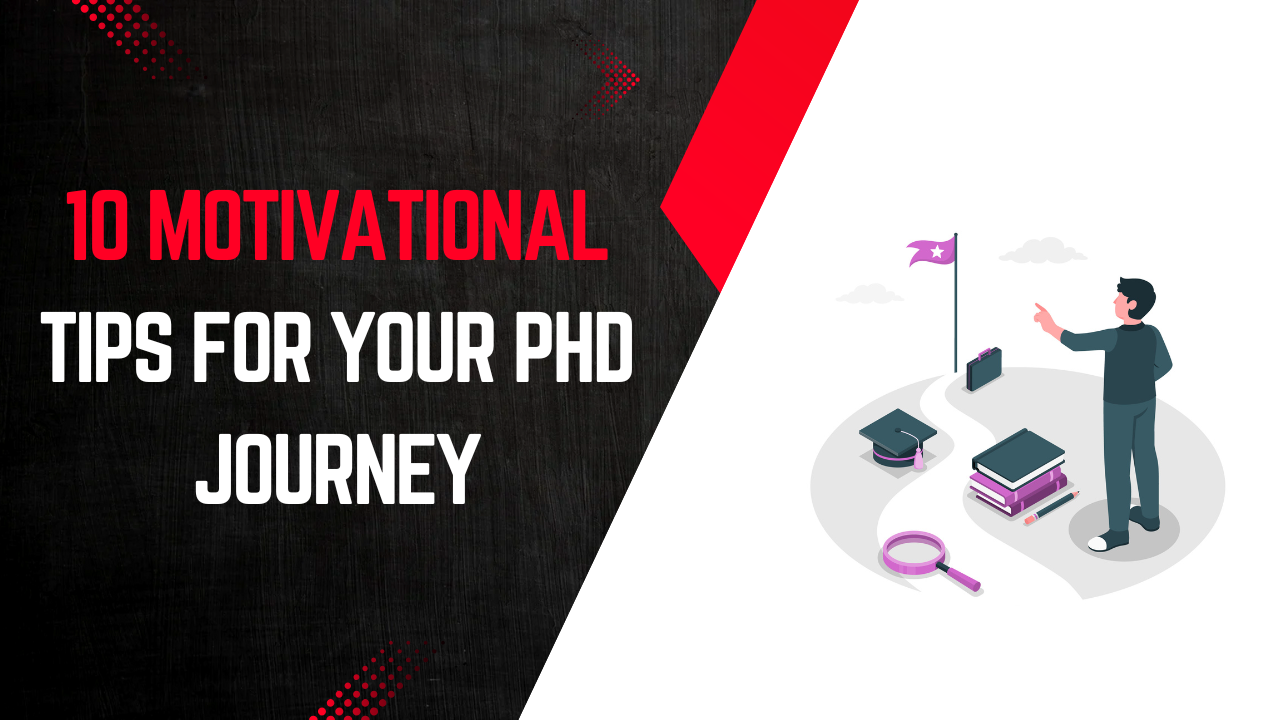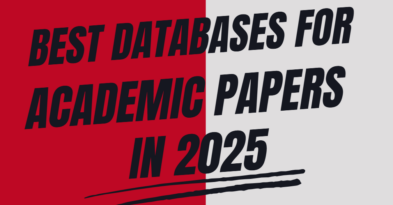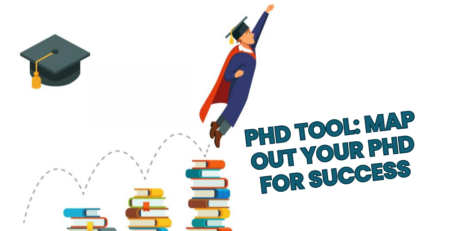10 Motivational Tips for Your PhD Journey
Kenfra Research - Shallo2025-04-01T16:41:15+05:30Embarking on a PhD journey is both exhilarating and challenging. It requires dedication, perseverance, and resilience. Whether you are just starting or in the middle of your research, staying motivated is key to successfully completing your PhD. These Tips for Your PhD Journey will help you stay focused and determined. Here are ten Tips for Your PhD Journey to keep you going!

1. Set Clear Goals
One of the best ways to stay motivated during your PhD is to set clear, achievable goals. Break your research into manageable milestones, whether it’s completing a literature review, drafting a chapter, or submitting a research paper. Defining both short-term and long-term objectives will help you track your progress and maintain focus. By achieving smaller goals along the way, you build confidence and sustain motivation.
A helpful strategy is to use the SMART goal-setting method—ensuring your goals are Specific, Measurable, Achievable, Relevant, and Time-bound. This structured approach enhances clarity and direction.
2. Stay Organized
Organization is crucial for managing the multiple aspects of a PhD, from research and writing to administrative tasks and deadlines. Use planners, digital tools like Trello, Notion, or research management software such as EndNote or Mendeley to keep track of your references and work schedules. Having a structured plan minimizes stress and maximizes productivity, making your journey smoother.
Additionally, decluttering your physical and digital workspace can boost focus and efficiency. A well-organized environment fosters a clear mind, allowing you to work more effectively.
3. Develop a Growth Mindset
The PhD journey is filled with challenges, setbacks, and even failures. Instead of seeing them as obstacles, adopt a growth mindset and view them as learning opportunities. Understanding that failure is part of the research process helps you stay resilient. Reflect on mistakes, learn from them, and keep improving. This approach fosters a positive attitude and enhances problem-solving skills.
Reading about other researchers’ struggles and successes can also provide inspiration. Many successful academics have faced failures but persevered, proving that persistence is key.
4. Find a Support System
Pursuing a PhD can sometimes feel isolating, but you are not alone. Build a strong support system consisting of mentors, academic advisors, peers, and friends. Joining PhD forums, research groups, or social media communities can provide encouragement, advice, and shared experiences. Having people to share your frustrations and achievements with can make the journey more enjoyable and less stressful.
Networking with fellow researchers at conferences and seminars can also open doors to collaboration, fresh ideas, and new opportunities, making your PhD experience more enriching.
5. Maintain a Work-Life Balance
A PhD can be overwhelming, but maintaining a balance between research and personal life is essential for long-term motivation. Avoid overworking yourself—burnout can significantly hinder your productivity and mental health. Allocate time for hobbies, exercise, and social activities. Whether it’s reading a book, going for a walk, or spending time with loved ones, taking breaks helps refresh your mind and improve overall well-being.
Practicing time-blocking techniques, where you allocate specific hours for work and relaxation, can help maintain equilibrium. Prioritizing self-care is just as important as academic success.
6. Celebrate Small Wins
Acknowledging your progress, no matter how small, keeps you motivated. Celebrate completing a chapter, finishing data analysis, or presenting at a conference. Rewarding yourself with something simple—like a nice meal, a short trip, or a day off—helps maintain enthusiasm and reminds you that you are moving forward. Recognizing progress boosts confidence and motivation to tackle the next challenge.
Keeping a journal to track achievements can serve as a reminder of how far you’ve come and inspire you to keep going.
7. Stay Curious and Passionate
One of the best ways to stay motivated is to maintain your curiosity and passion for your research. Remind yourself why you chose this topic and what excites you about it. Read widely, attend academic conferences, and engage in discussions with fellow researchers. Exploring new ideas and perspectives keeps your enthusiasm alive and enhances your research quality.
Consider attending interdisciplinary seminars, where exposure to different perspectives might spark fresh insights and keep your intellectual curiosity alive.
8. Seek Constructive Feedback
Regular feedback from advisors, professors, and peers is essential for improving your research. While criticism can sometimes feel discouraging, embrace it as an opportunity for growth. Seeking constructive feedback ensures that you are on the right track and helps refine your work. Engaging in academic discussions and attending workshops can also provide valuable insights and motivation.
Additionally, learning how to filter feedback—knowing what to implement and what to ignore—can make the process more effective and less overwhelming.
9. Stay Physically and Mentally Healthy
A healthy mind and body are crucial for productivity and motivation. Prioritize your well-being by maintaining a balanced diet, exercising regularly, and getting enough sleep. Mental health is just as important—practice mindfulness techniques like meditation or yoga to reduce stress. If you ever feel overwhelmed, don’t hesitate to seek professional help or counseling services.
Incorporating activities such as journaling, breathing exercises, and gratitude practices can also enhance mental resilience. Your well-being should always be a priority.
10. Visualize Your Success
Visualization is a powerful motivational tool. Picture yourself successfully defending your thesis and receiving your PhD. Imagine the sense of achievement, pride, and relief. Keeping the end goal in mind can push you through the toughest times. Create a vision board with inspiring quotes, goals, and milestones to remind yourself why you started this journey.
Writing a letter to your future self about how you’ll feel when you complete your PhD can serve as a source of motivation during tough times.
Conclusion
The PhD journey is demanding, but with the right mindset and Tips for Your PhD Journey, you can stay motivated and achieve your academic goals. Remember, perseverance is the key to success. Stay positive, stay focused, and keep pushing forward! Surround yourself with supportive people, follow these Tips for Your PhD Journey, maintain a healthy balance, and celebrate every milestone.
Kenfra Research understands the challenges faced by PhD scholars and offers tailored solutions to support your academic goals. From topic selection to advanced plagiarism checking.







Leave a Reply